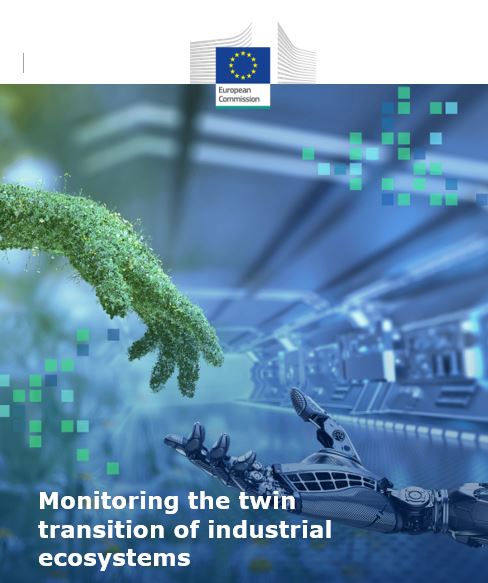Initial findings from the European Monitor of Industrial Ecosytems reveal that the EU Industry is committed to fulfil the green and digital transition

date: 19/02/2024
The EMI project provides policymakers, industry, and academia with fresh insights on the EU’s industrial competitiveness and sustainability by measuring the supply and demand of skills, investments and funding, technology development and adoption, start-up trends, environmental impact, among others.
The initial results of this analysis captured in the Staff Working Document show that there is a serious commitment by industry to speeding up digitalisation, with 49% of SMEs reporting an increase in their investments in digital technologies and 42% reporting an increase in their investments in green technologies in the last five years. At the same time, the results reveal that European private equity and venture capital investment in green and digital tech firms have consistently increased since 2016, with significant increases in 2021 and 2022.
The Staff Working Document also shows that the EU has maintained its ability not only stay ahead of other major economies in terms of transnational patents for green technologies such as renewable energy technologies, but also to produce more than it imports as regards most technology-based goods, especially those based on advanced manufacturing and robotics and renewable energy technologies.
However, EMI’s initial results also flag key areas for improvement. On the one hand, it stresses that the availability of digital skills in the EU remains limited, resulting in a strong gap with levels of demand for such skills, especially in service-based ecosystems. On the other hand, it highlights similarly low levels of supply and demand of green skills in the EU.
The findings also reveal that the EU is losing ground to China and the US in terms of transnational patent applications in some key digital technologies, namely AI and Big Data, and that China has also caught up with the EU in terms of solar power patent applications. This loss of competitiveness is also reflected in trade and production data, which shows that the EU produces much less than it imports in these two technology areas.
The complete Staff Working Document with further details about these findings and the complete data can be found here.
